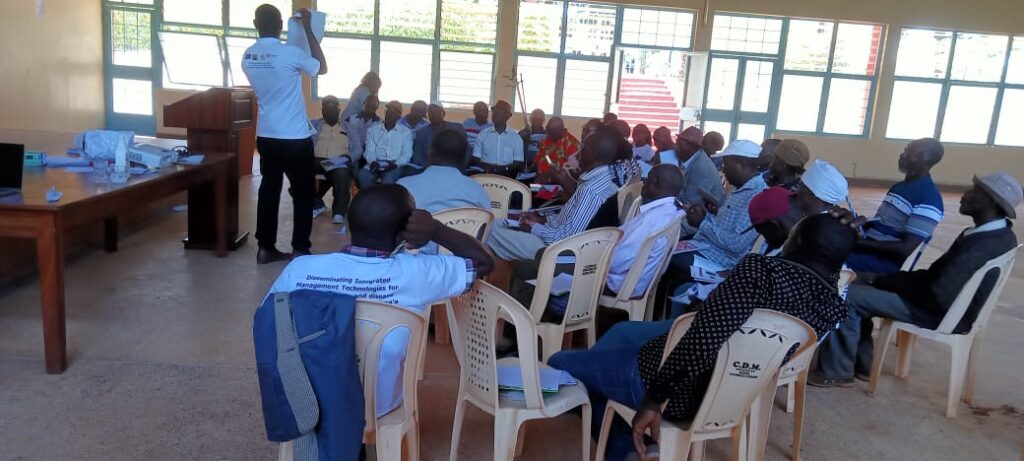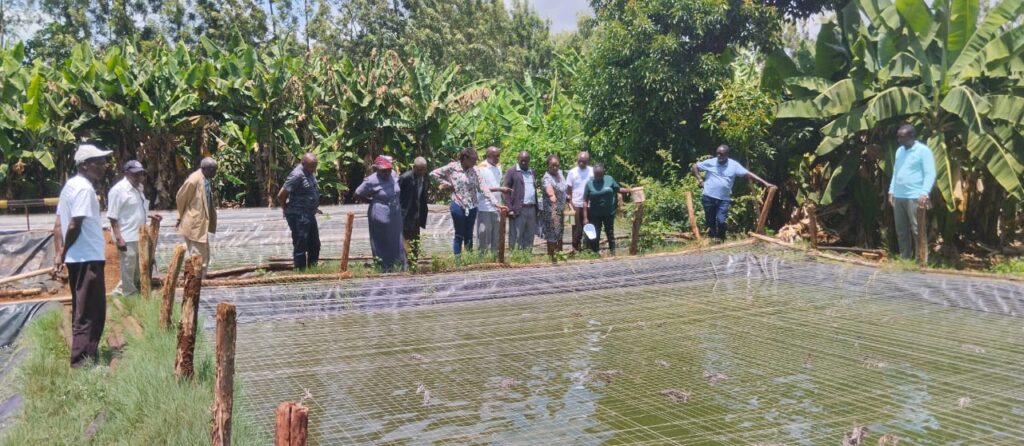
Caritas Murang’a is the Relief and Social Development Arm of the Catholic Diocese of Murang’a whose purpose is to enhance holistic development of the human person as mandated by the gospel of Christ and social teachings of the Church in promoting the word of God to His people while working with them for realization and sustenance of the pastoral and social economic needs.
Mission
We are the social development of the Catholic Church that exists to witness the Gospel of Christ through the integral development for the common good of all the people.
Vision
A society where people for their sustained development in dignity witnessing God’s love
Caritas Murang’a Programmes:
- Humanitarian Programme
- Livelihoods Programme
- Gender and Development Programme incorporating youth
- Advocacy Information, and Communication Programme
- Capacity Building Programme
- Orphan and Vulnerable Children (OVC) Programme



Capacity Building
The Capacity Building Programme aims to ensure that Caritas Murang’a and the Community Based Organizations (CBOs) increase efficiency and effectiveness in promoting sustainable and integral human development programming and representation. Capacity building is a cross cutting component in all programmes.
Livelihoods
Coordinates programmes aimed at reducing the levels of poverty through supporting innovative strategies that facilitate sustainable livelihoods among communities. Main components include: Sustainable Agriculture and food security, water development, environmental conservation and climate change mitigation, and microfinance.
Livelihoods cover the following areas:
- Food Security
- Microfinance initiatives
- Farming and alternative (non-farm) livelihoods
- Environment and climate change
- Water and Sanitation
Advocacy, Information and Communication
Activities aimed at ensuring that voices of the poor and marginalized are heard through proactive research linked policy influencing. Caritas Murang’a strives to advocate for the (children in especially difficult circumstances (CED), women, Internally Displaced Persons (IDPS) and the youth.
Advocacy strategies include the research into the issues for advocacy, proactively engaging stakeholders in discourse on pertinent issues, participation in policy formulation processes and influencing policy reform through for a with legislators at national level.
Coordination whereas the livelihoods advocacy entails research based policy
influencing through promoting engagement between Church leaders with legislators.
Gender and Development Programme (GDP)
The programme coordinates activities aimed at promoting empowerment of women and integral human development.
Main activities include:
Capacity Building through training and awareness creation: This includes imparting knowledge and skills on women to enable them transform their situations: and sensitizing the community, made up of women, men, boys and girls, on specific gender concerns, their impact on the progress of the society the need for legal, social and judicial redress.
Main projects are:
1. Training women on management skills
2. Gender sensitization
3. Single Mothers Animation
4. Civic Education
5. HIV\AIDS
Humanitarian Programme
The programme aims at disaster management and mitigation. It coordinates
emergency interventions while at the same time integrating long term development in a bid to build mitigation capacities for disaster prevention.
Food Security Project
The food security programme is an avenue for support of various agricultural associated initiatives aimed at enabling the poor to have food at all times and in sufficient quantities. It aims at enhancement of National Food Security and supporting appropriate production and sustenance strategies within
communities, as well as building capacities within the same communities to allow for sustainable environmental practices.
Water, Sanitation and Environmental Protection
For a productive population, there is need to facilitate a conducive physical environment within which the development activities can be conducted. Caritas Murang’a aims at achieving that through initiatives in the livelihoods programme which target water and sanitation and protection of the environment.
Activities undertaken aim to achieve the following:
- Protect and improve the health of people
- Create a healthy and sustainable environment
- Ensure that individuals and organizations are aware of their duties to protect the health of others and to protect the environment.
Orphans and Vulnerable Children
This program addresses the plight of orphans and vulnerable children. It provides comprehensive and compassionate care for orphans and vulnerable children in families and their community. The department put forward five key strategies for care and support to OVC as follows:-
– To strengthen the capacity of families to protect OVC by prolonging the lives of parents and providing economic, psychosocial and other support.
– To mobilize and support community based responses to provide both immediate and long term support to vulnerable households.
– To ensure access for OVC to essential services including education, healthcare and others.
– To ensure that government protect the most vulnerable children through improved policy legislation and by channeling resources to communities.
– To raise awareness levels through advocacy and social mobilization to create a supportive environment for the orphans and vulnerable children.
